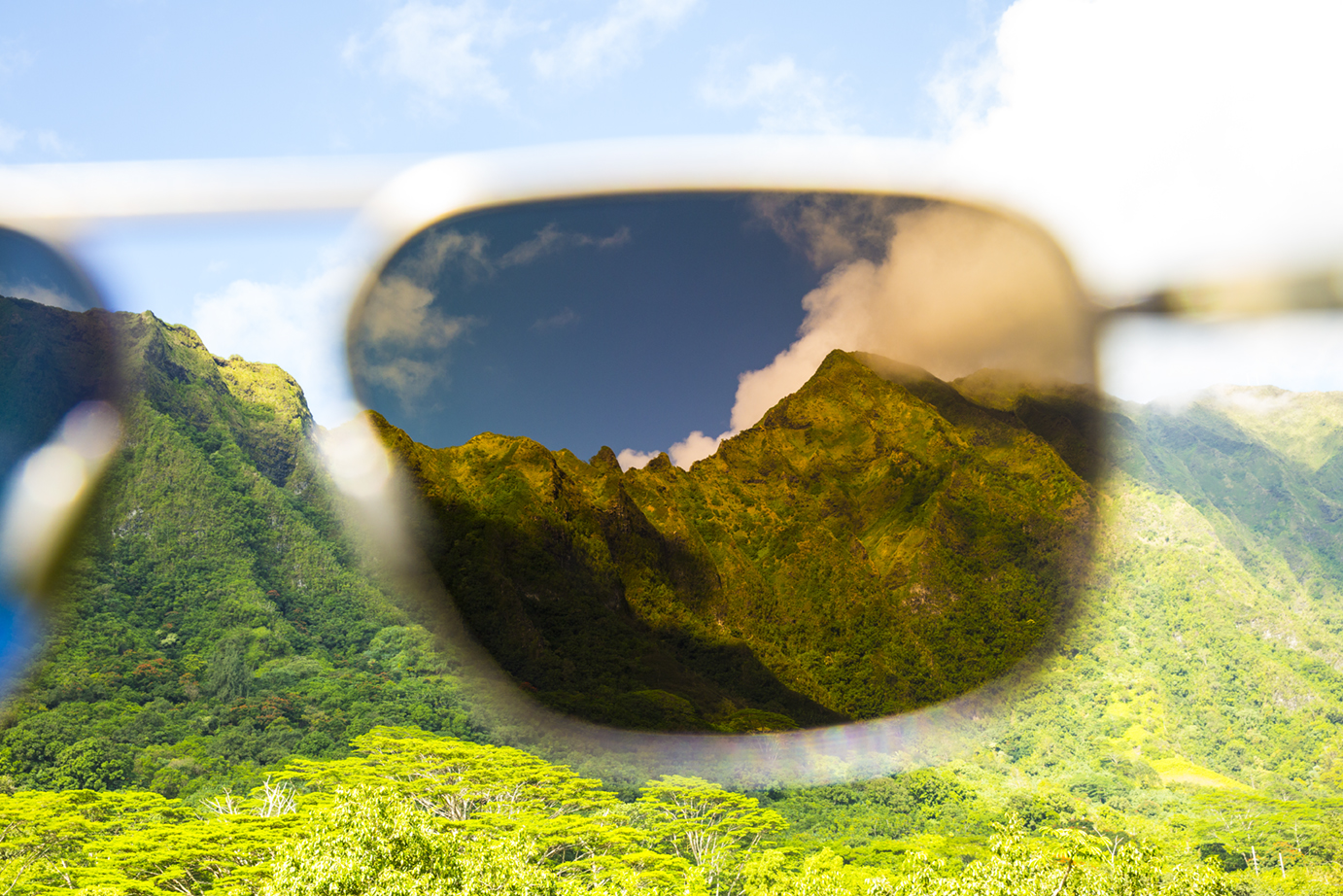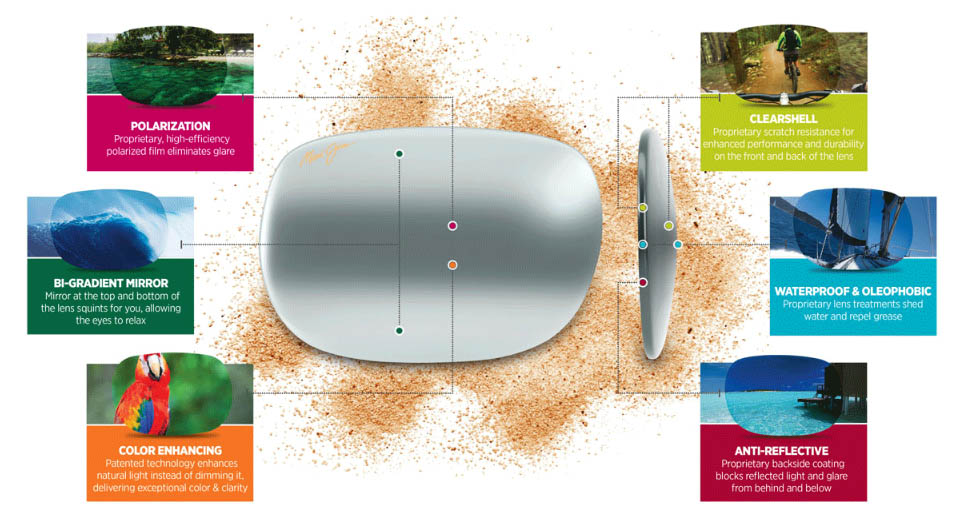FIND A RETAILER
©2022 Maui Jim, Inc. Lahaina, Hawaii
Home / How Do Sunglasses Block UV Rays?

Sunglasses make it easier and more comfortable to see on a bright, sunny day, but your lenses should do more than just shade the eye. The best sunglasses are equipped with technology that wards off the damaging effects UV rays can have on your eyes.
Not to be confused with the tint of the glasses, UV protection is found in one of the many layers that compose your sunglass lenses, either coated on the front or built into the lens itself. This is why even clear lenses can offer UV protection. Sporting a pair of heavily-tinted sunglasses that don’t contain this UV-blocking layer can actually make your eyes more vulnerable to damage by widening the pupils and allowing in more UV rays.

To better understand how sunglasses block UV light, it’s important to know why you want to block these rays in the first place.
The sun emits different variations of ultraviolet lights, including UVB rays (responsible for sunburns) and UVA rays (responsible for the aging of skin). These same sun rays that cause temporary and permanent damage to your skin can also provide a similar array of short- and long-term problems for your eyes.
UVB rays can cause “sunburn to the eyes” and destroy the protective layers located in the outer cells of the cornea, sometimes resulting in:
 · Painful burning sensation
· Painful burning sensation
· Blurred vision
· Feeling of grittiness
· Redness
· Tearing
· Intense sensitivity to light
Longer-term exposure to solar radiation, and in particular to UVA rays that can seep deeper in the eyes, may inflict more permanent damage to the retina at the back of the eye. This can lead to macular degeneration, cataracts, and in some extreme cases, permanent blindness.
Another harmful ray that is less talked about is blue-violet light, whose sources include fluorescent and LED lighting, flat-screen TVs, computer screens, and cellphones. The furthest on the spectrum of visible light, blue light has been shown to increase the risk of macular degeneration, create eyestrain and invoke symptoms of “sunburn to the eyes.” Many sunglasses also fail to filter out blue-violet light, even if they protect against 100% of UVA and UVB rays. Ideally, you’ll want to find a pair that offers 100% UV-protection and has built-in blue light protection.
Ready to grab your pair of Maui Jim Polarized Sunglasses?
Similar to how sunscreen provides a protective barrier between your skin and the sun, a good pair of sunglasses will protect your eyes from the damaging effects of UV rays. Lenses that offer UV protection are built with a special coating that absorbs, blocks, and reflects UVA and UVB rays, preventing them from penetrating through the lens and into your eye. Before purchasing a pair of sunglasses, you should always make sure they offer 100% UV protection and that the technology is built into the lens, versus a top-coating that can wear off over time.
 Selecting sunglasses that offer 100% protection from harmful UV rays is ideal if you want to see comfortably and clearly—now and in the future. Maui Jim’s PolarizedPlus2® lenses were designed to work with the strongest sun in the world and can block the most intense UV rays, blue light, and glares. Maui Jim is the only sunglasses manufacturer to earn the Skin Cancer Foundation Seal of Recommendation due to the effectiveness of our UV filters in protecting the eyes and the surrounding skin.
Selecting sunglasses that offer 100% protection from harmful UV rays is ideal if you want to see comfortably and clearly—now and in the future. Maui Jim’s PolarizedPlus2® lenses were designed to work with the strongest sun in the world and can block the most intense UV rays, blue light, and glares. Maui Jim is the only sunglasses manufacturer to earn the Skin Cancer Foundation Seal of Recommendation due to the effectiveness of our UV filters in protecting the eyes and the surrounding skin.
Polarized lenses do more than block light and UV rays, they also prevent blinding glares caused by light reflecting off of water, snow, grass, sand and other horizontal surfaces.
Purchase a pair of polarized sunglasses today to start seeing with more clarity, color, and comfort.
©2022 Maui Jim, Inc. Lahaina, Hawaii

 Top Ten Fan Photos – July 2019
Top Ten Fan Photos – July 2019